50 Acre Ranch
Lucia Vineyards (Pisoni)
Garys' Vineyard Pinot Noir 2012

Ten Acre
Chenoweth Ranch Pinot Noir 2012
Had with beef at Jonah and Bara's! — 8 years ago
Te Mata Estate
Hawkes Bay Cabernet Merlot 2015
The yield of fruit per acre is only 1.5 tons. Ridiculously, low considering that most growers are above 3 tons an acre in many regions of the world. 50% of this is done in stainless and the other 50% in used oak. On the nose, lemon, lime, herbaceous notes and yellow florals. The body is crazy lean, soft & delicate. White peach, mint, lemon, lime, cream, yellow florals, a life of soft spice on the long finish. Impressive and different from most new world Chardonnay's. Also, this producer does acidity perfectly. — 9 years ago
Cherry Pie Wines
Stanly Ranch Pinot Noir 2012
Finally trying Cherry Pie (from Hundred Acre). 3 different single vineyard Pinots from 2012. Stanly Ranch is dynamite (and a vineyard to keep an eye on). Reminiscent of Kosta Browne. Next up is Rodgers Creek. Darker fruit. Less explosive, but a nice wine. Third up is Carinalli. Way lighter, though some spice to it. It's fine, but doesn't hold a candle to the other two. (Thanks Mastro's in Scottsdale for hosting me!) — 10 years ago
The Ojai Vineyard
50% Roll Ranch Vineyard 50% Bien Nacido Vineyard Syrah 2000
An opaque red/purple, the '00 Ojai Syrah '50% Roll Ranch 50% Bien Nacido' is richly scented with black raspberry, ground pepper and dark cherry notes. Powerful mouth-coating flavors of ripe black fruits with spicy cracked peppercorn accents then flood the palate. The fully-rounded and well-integrated tannins make the lingering finish lip-smackingly delicious. — 10 years ago
Halter Ranch
Estate Bottled Paso Robles Cabernet Sauvignon 2011
For under $30 drinks like a $50+ NAPA Cab - amazing consistency across vintages, the folks at Halter are only getting better and better. — 11 years ago
Sterling Vineyards
Diamond Mountain Ranch Cabernet Sauvignon
Dry, full body, need to open 1/2 hour before to really be ready. Smooth no burn or acid. Deep color, more fruit/ berry not so much chocolate. It is a 50 to 60 dollar value IMO — 12 years ago
Calistoga Ranch
Sotero's Vineyard Cabernet Sauvignon 2010
Only 50 cases a year. Just stayed there too and was so blown away by this wine! — 13 years ago
Foxen
7200 Guillermo Grosso Sangiovese 2014
Holiday vino! This little beauty came in my last shipment from Foxen, one of my favorite producers in Santa Barbara county. The Guillermo Grasso is Foxen’s take on a new world Tuscan - a 50:50 Sangiovese (Faith Vineyard)-Cabernet Sauvignon (Vogelzang Vineyard). 22 months in French Oak - 40% new - gives this wine a hefty punch of tannin and body. While the Vogelzang Vineyard is well known for producing wonderfully complex Cabernet, I’m not as familiar with Faith Vineyard - however a quick Google search shows that the Vineyard, located in Santa Ynez, specializes in Sangiovese and Sauvignon Blanc on a 7 acre plot. Though Foxen recommends cellaring this one for a few years to mellow out - I’m drinking it early. Paired with fish tacos. ~$35 | #foxen #santaynezvalley #supertuscan
On the eyes: Deep, concentrated blood red, bright - but hazy (unfined and unfiltered), med+ stain, med+ tears, no gas.
On the nose: Strawberry, cherry, rose hips, pencil shavings, tobacco, and a bit of earthy funk. Med+ alcohol.
On the tongue: Med+ acid, med+ tannin, med+ alcohol, full body, firm and tight. Red currants, raspberry, floral high notes, cigar box, and worn leather. A bit cloying and rambunctious - it would benefit from a year or two in the cellar, but still very yummy! Decant it and enjoy! Merry Christmas! — 8 years ago
Alban Vineyards
Reva Alban Estate Vineyard Syrah 2005
Alban Vineyards as they state in their label "The first American winery & vineyard established exclusively for Rhone varieties." This Syrah has settled in nicely after 10 years in bottle. I would say it's peaking. On the nose; scorched earth, sweet & slowly baked; blackberries, blueberries, black raspberries, plum, huckleberries and dark cherries. Mint, eucalyptus, milk chocolate, black olive, notes of liqueur, crushed rocks, loamy top soil and lilacs, violets and lavender. The palate is rich and nicely resolved. The body medium-medium plus. The fruits are ripe, creamy and juicy; blackberries, blueberries, black raspberries, plum, huckleberries, dark cherries and strawberries haunt the long fruit set. Mint, eucalyptus, sage, smoked meat, milk chocolate, black olive, notes of liqueur, crushed dry rocks, gritty volcanic minerals, scorched earth, a little bacon fat, underbrush, a whiff of black pepper, lilacs, violets and lavender, great rich, round, fresh acidity with a very good, long, balanced, well structured, finish with length and staying power. I prefer this over the Cayuse I had a couple of weeks ago. Much better balance of fruit, earth, etc.. photos of their Edna Valley vineyard, fruit that needs netting to protect it from the birds, John Alban and the Alban barrel room. Producer notes and history...In 1985, John Alban planted grapes for other people until he bought an estate in 1989. He focused on wines made from Rhône Valley varietals. Alban is one of the pioneers of the Rhone Rangers movement. They are considered to one of the more influential American Rhone producers. In beginning to grow Viognier, Alban said, "I almost single-handedly doubled the world's acreage," referring to a time when its cultivation was reduced to 50 acres or 20 ha in two areas of the Rhône Valley, Condrieu and Château-Grillet. Alban's work, along with that of Josh Jensen of Calera Wine Company (just sold to Duckhorn, ugh!) in San Benito County, helped to significantly expand plantings of Viognier in California at a time when the variety was near extinction. Alban has 250-acre or 100 ha under vine. Their vineyard area extends 60 acres or 24 ha, planted with Syrah, Viognier and Roussanne. The Alban wines produced are; Lorraine Vineyard, Reva Vineyard Syrah, Seymour's Vineyard Syrah, Patrina Alban Estate Syrah and Pandora, a blend of Grenache and Syrah. They also used to produce a dessert wine from 5% botrytis grapes and aged in 50% new oak, called Rotten Luck. You can still find past vintages on Wine-Searcher. — 8 years ago
Montinore Estate
Willamette Valley Pinot Noir 2014
Located just South of Forest Grove, Oregon on a 585-acre wine estate overlooked by a grand Victorian mansion. Light Ruby with aromas of sweet red fruits and gentle floral notes, aged 10 months in 50% French & 50% Hungarian oak (12% new). On the palate strawberry and ripe cherry flavors with pepper and cedar spice. Sweet savory tannins, nicely balanced with good structure, medium finish ending with mineral tones. Great value! — 8 years ago
Kenefick Ranch
Caitlin's Select Napa Valley Cabernet Franc 2013
50 Petit Verdot, 30 Malbec, 20 Cab Sauv. Strong cedar and vanilla aroma. Eucalyptus dances on your tongue with a long, strong finish. Huge. Great. — 8 years ago
Ten Acre
Chenoweth Ranch Russian River Valley Chardonnay 2013
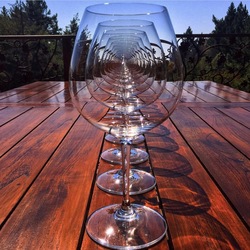
Merlo Family Estate Vineyards
Hyapom Ranch Blackbird Red Blend
50 Zin / 50 Syrah. At Family Winemakers of California Tasting in Del Mar. 3/5/2017. — 9 years ago
Bedrock Wine Co.
Dolinsek Ranch Heritage Red Blend 2011
Dark ruby color with brambly mixed black and red fruit and spice aromas. On the palate it's medium-bodied, and focused with creme de mure, black and red currant, black cherry, and spice with a very appealing minerality. Long finish. A field blend of Zinfandel, Petite Sirah, Alicante Bouchet, Grand Noir, Teroldego, Syrah, Black Muscat and Golden Chasselas. From 4.5 acres of wizened, stumplike, dry-farmed, head-trained red vines, which, planted in 1910, produce only half a ton per acre. — 9 years ago
Soter Vineyards
Mineral Springs Ranch Pinot Noir
Soter's 2012 Mineral Springs 'White Label' Pinot Noir has a rather unique story in that it is crafted from an unidentified "heirloom" clone. Who cares what the clone is, the results are spectacular. The perfect combination of concentration and finesse, the nose is a romp through a damp and earthy forest glen, fields of lavender, and then to the market, to find juicy blackberries and blueberries at their peak. Equally lush, almost brooding on the palate, with underlying layers of minerality and spice. Pinot reserved for the white label is aged 12 months on 50% new French oak, with 30 days extended maceration and minimal racking. 14.0% ABV — 10 years ago
Ahlgren
Bates Ranch Cabernet Franc 1992
Another fine SCM Cab Franc specimen - liked it as much as the 1993. Tasted on two occasions almost two years apart, no signs of exhaustion yet.
Winemaker's Comments: 75% Cabernet Franc, 25% Cabernet Sauvignon, Bates Ranch. Raspberry fruit bouquet with black pepper undertones. Rich, elegant, complex. Round balance, lingering finish. Aged in 50 gal. American oak barrels. Unfined and unfiltered. Only 56 cases produced. Bottled March 1994. — 11 years ago
Stanton Vineyards
St. Helena Petite Sirah 2011
Only 292 cases produced very dark berry fruit blueberry pretty floral notes dark spices with a chewy texture ripe and round tannins same block every year 1 acre that is it for this wine they have 50 acres they sell 90^ of fruit most excellent — 12 years ago
Ridge Vineyards
Buchignani Ranch Carignane 1999
Old Vine Carignane planted in the 30's, 40's & 50's - Buchignani Ranch. House Block. — 13 years ago
One True Vine
Stanley Ranch Vineyard Cherry Pie Pinot Noir
Label says it all. Loads of ripe cherry. Some spice. Silky. Crowd pleaser. Great buy for 30 bucks but can do better for 50. — 8 years ago
Regusci
Estate Grown Block 3 Cabernet Sauvignon 2009
Fresh, ripe nose of; huckleberries, boysenberries, dark cherries, black raspberries, raspberries, black plum, plum, mocha/milk chocolate, caramel, baking spices, sweet rich clay soils, very light presence of herbs and fresh red flowers with violets. The body is full, rich and nicely resolved with round M+ tannins. The fruits are big and ripe; huckleberries, boysenberries, dark cherries, black raspberries, raspberries, black plum, plum with strawberries dancing in the background. Caramel, mocha/milk chocolate, chocolate pudding, vanilla, cinnamon, nutmeg, hints of clove, sweet rich clay soils, darker spices, crumbled volcanic minerals, touch of dry herbs, suede/velvety leather, mouthwatering, fresh round acidity and a long, rich, elegant, smooth as silk, balanced finish that lasts over a minute. Photos of; the the tasting room/bar, the fresh vegetable honor stand in front of the winery, picnic area and the view onto the valley floor from their terrace. Producer notes and history...born near the Italian-Swiss border, Gaetano Regusci journeyed to the Napa Valley in 1891 working at a dairy along today's Silverado Trail. In 1932, Gaetano cashed in his entire life insurance policy and purchased a foreclosed property across the road, known today as Regusci Ranch. For the next 30 years, Gaetano lived off the land, farming; corn, hay, walnuts, plums and grapes. He ranched cattle, ran a dairy and opened a retail market. They survived prohibition and the great depression. Gaetano held onto the Ranch, passing along the historic Stags Leap District property to his son Angelo in the 1960s. Regusci long before making wine were excellent farmers...a nice resume for growing grapes. Through five generations, they were commited to agriculture. Gaetano Regusci purchased a 289-acre estate in the Stags Leap District; which included one of the preeminent wineries of its time, the Grigsby-Occidental Winery established in 1878. At that time, the wine industry was not what it is today. Aside, from growing and making homemade wine and selling grapes. When Gaetano's son Angelo took over the family Ranch in the 1960s, he began planting Bordeaux varieties on the estate. His decision would prove to be visionary within a few decades. As the wine industry flourished so did their vineyards. They planted a 160 acres of grapes that reside on the estate today. Angelo's (Angelo's Vineyard, is perhaps their best bottling) son Jim became a farmer as well, taking over Ranch duties in the 1990's. Having farmed for many of Napa Valley's most notable vineyards, Jim decided to establish Regusci in 1996. Their first crush amounted to 1,900 cases. Today, they produce 6,500 total cases spilt under several different wines designations. It's a fun place to visit and taste. Behind the tasting bar, they have a two foot piece of the cable that was used to make the Golden Gate Bridge. Ask them to see it. However, it's as heavy as a large dumbbell. When you make an appointment, see about reserving one of their picnic tables after the tasting. If you get a table purchase your lunch before you get to the winery as they do not sell prepared food. However, during the growing season, they have a honor system cart for the fruits and vegetables they still grow as shown in the photos. It's a must stop along the Silverado Trail...a beautiful setting with amazing vistas. — 8 years ago
Cayuse Vineyards
En Chamberlin Vineyard Syrah 2006
This wine seriously has more bacon fat and pork than I've experienced in a bottle. The fruit is one of the last things I will have in this description. It's why there is a pig in the picture collage! I had to do it because right now that is the dominating flavor of the wine. I am going to come back to this in a bit. Let's see what happens after some time in the decanter. This starting to calm down a bit. On the nose, bacon fat, pork, grilled meats, BBQ sauce, olive, loads of milk chocolate, brine, brown sugar, dried blood, pepper, black plum, dark cherries, blackberries, faint strawberries, dry stones, loamy clay soil, scorched earth, soy sauce and decayed dark florals. The mouthfeel is thick and brooding. Everything on the nose is on the palate. The acidity is round. The finish is thick, rich with intense flavors that stick to the palate and linger endlessly. If I had more bottles of the 06 En Chamberlin, I'd wait another 8-10 years to open them. It's still a monster. Photos of; the front of their tasting room in downtown Walla Walla that is generally always closed, the stone vineyard of Cayuse that needs to be horse plowed, Christophe Baron (owner), ready to pick grapes and a field pig...just because their is so much pork in this wine. Producer notes and history...while visiting the Walla Walla Valley in 1996, Christophe Baron spotted a plot of land that had been plowed up to reveal acres of softball-sized stones. He became ridiculously excited. This stony soil, this terroir, reminded him of vineyards he had visited in France (Rhone Valley) and Spain. The difficult ground would stress the grapevines, making them produce more mature, concentrated fruit. Christophe Baron had found a new home. He named his vineyard after the Cayuse, a Native American tribe whose name was taken from the French cailloux–which means, of course, rocks. Hours of back-breaking work later, Cayuse Vineyards has become five vineyards encompassing 50 acres: Armada, Cailloux, Coccinelle (Ladybug), En Cerise (Cherry), and En Chamberlin. The majority of the vineyards are planted with Syrah, and the rest dedicated to Cabernet Franc, Cabernet Sauvignon, Grenache, Merlot, Tempranillo and Viognier. All of the vineyards are planted in rocky earth within the Walla Walla Valley appellation. Cayuse was also the first winery in Walla Walla to farm using biodynamic methods. These highly stressed vineyards average a yield of only two tons or less per acre (30 hectolitres per hectare), resulting in wines true to each vineyard’s unique terroir. Cayuse specializes in four estate-vineyard Syrahs, along with Bionic Frog Syrah, Impulsivo Tempranillo, Widowmaker Cabernet-Sauvignon, two Bordeaux blends named Camaspelo & Flying Pig and Viognier. Look for their other partnership wines; Horsepower & No Girls if you haven't already. Nearly 100% all mailing list, restaurants and secondary markets. — 8 years ago
Anthill Farms
Campbell Ranch Vineyard Pinot Noir
I really liked, clearance $40 from $50. Very nice Pinot Noir. Fruit and smooth, not earthy — 9 years ago
Edmond Vatan
Clos La Néore Sancerre Sauvignon Blanc 2013
One of those bottles that you remember all your life, a fair 50€, I need to get more, that was an awesome treat for #winelover - unique Clos La Néore Sancerre, one of the purest Sauvignon Blanc, complex and it still so young - very charming, pure chalky soil a 3.6-acre parcel within the cru of Mont Damnés — 10 years ago
Merryvale Vineyards
Napa Valley Merlot 2011
A very juicy merlot with lots of plum and cherry fruit they own three vineyards Stanley ranch 60 acres they purchase 50% of their fruit they use. A good amount of ripe berry and plum fruit with notes of herbs and peppery spice a good amount of fruit for a 2011. Excellent! — 11 years ago
Bodegas Numanthia
Numanthia Toro Tempranillo 2008
50-100 years old 3500kg per liter very small under2tons per acre 100% new barrels better for barrel fermentation deep dark earth soy espresso dark berry and plum fruit meaty dark and wild animal very aromatic black licorice 2010 the best vintage ever2008amaxing next to 2005and of course 2004 very rich and well endowed on the palate very round and silky tannins a big but well balanced wine lots of dark spices and fresh on the finish dark spices and some wild animal like but has lots of fruit earth and dark earth with layers of everything here and in balance. Finish 50+ most excellent — 13 years ago







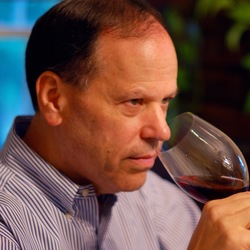



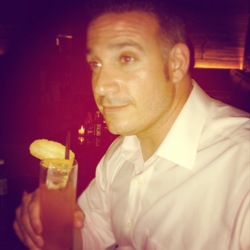
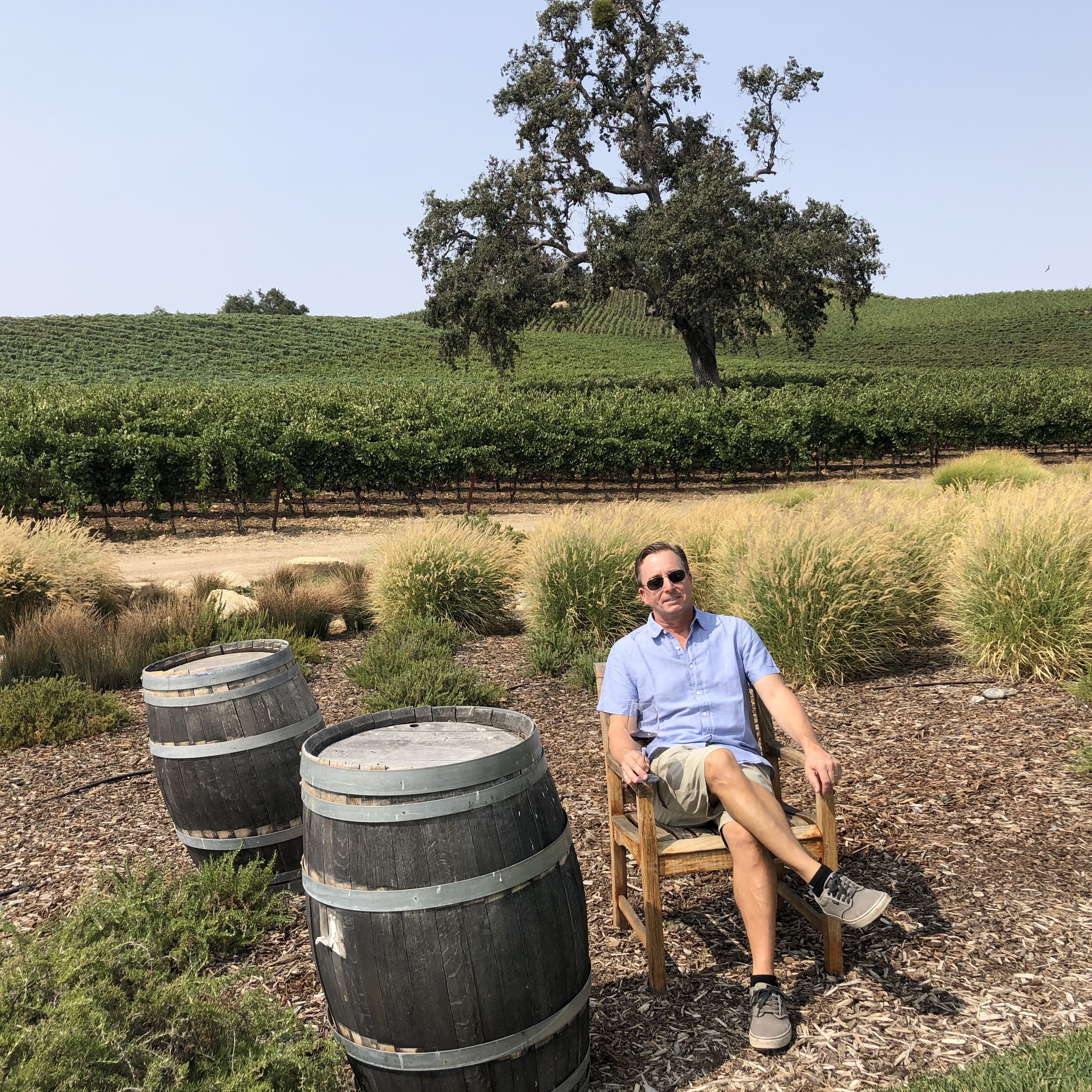
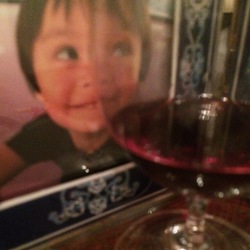
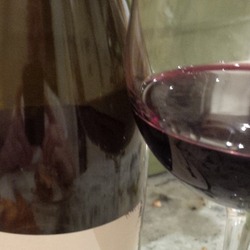



Somm David T
Independent Sommelier/Wine Educator
A wine I’ve enjoyed mostly upon release or near it. I vowed to wait six years and nearly made it. At least it is 2018...just! It’s worth waiting this/that long for it to develop. On the nose; sweetly, baked fruits of; dark cherries, strawberries, black plum, plums, blackberries, and notes of blue fruits. Cinnamon, vanilla, very light clove & nutmeg, caramel, soft, medium, beautiful spice, black fruit tea, limestone minerals, loamy, dry, brown top soil, fresh dark florals and violets. The mouthfeel is full, rich & lush. The tannins are round, still have some teeth and possess velvety round edges. It’s fruit driven but not a bomb and showing elegance & grace. Fruits are perfectly ripe; dark cherries, strawberries, black plum, plums, blackberries, notes of blue fruits and dry cranberries dip in and out. Cinnamon, vanilla, very light clove & nutmeg, caramel, soft, medium beautiful spice that is more pronounced on the palate, black fruit tea, touch of melted brown sugar/molasses, limestone minerals, touch of rich dark sweet turned soil, loamy dry brown top soil, soft understated eucalyptus/mint, dry fresh florals and violets. The round acidity is just right, just a slight very small alcohol burn, the length, structure, tension and beautifully balanced finish are in a very good place. Even better in 2-3 more years in bottle; which is when I’ll have my next one. Photos of; the winemaking duo of Gary Franscioni (left) and Gary Pisoni, Rosella’s Vineyard on the right. As well as, Garys’ Vineyard at the bottom. Producer notes and history...The Santa Lucia Highlands appellation is known for its rich, vibrant Pinot Noirs. However, that wasn’t always the case. The first Pinot was planted in 1973, but results weren’t all that great. Chardonnay was the appellation’s early star. Much of the area’s current fame for Pinot Noir arguably can be traced to Gary Pisoni, a free-spirited wine enthusiast who grew up in a Salinas Valley vegetable farming family. Pisoni decided to plant a few acres of Pinot Noir in 1982 on his family’s horse ranch, at the southern end of what was to become the Santa Lucia Highlands appellation but his horses started eating the grapes. So, they had to go. His initial planting were limited by a lack of water until he dug a well on the property. Pisoni started planting even more Pinot Noir. The vineyard is now around 45 acres and nearly all of it Pinot. By the late 1990s, word had spread about the success of his vineyard, and a number of Pinot specialists from around California had started lining up to buy his grapes. He started producing his own wine in 1998. Pisoni isn’t the only Gary who has become a force in the Santa Lucia Highlands. Gary Franscioni, a childhood friend, followed Pisoni’s lead by planting grapes and started Roar Wines in 2001. The two of them now have five vineyards between them...all farmed meticulously with the same crew. They are best of friends...sort of a Mutt & Jeff. They have become a formidable presence in the Highlands, attracting interest from top winemakers and Pinot Noir lovers from all over. Franscioni is also from a vegetable farming family; Pisoni figures they’ve known each other since they were 3 or 4. Franscioni saw his friend’s success and once he got some money together, decided to plant grapes of his own. Franscioni’s property is farther north and cooler as it’s closer to the Monterey Bay. He was going to plant Chardonnay. He woke up and Franscioni recalls imitating Pisoni, and shouted, “plant Pinot!” Franscioni planted what became Rosella’s Vineyard, named for his wife, in 1996. He took Pisoni’s advice and planted four acres of Pinot Noir, although he still planted 12 acres of Chardonnay. It’s now a total of around 50 acres with three-quarters of it Pinot Noir. The next year, they decided to become partners and planted Garys’ Vineyard, a 50 acre parcel where they grow Pinot and a little Syrah. Since then, Franscioni has developed Sierra Mar, 38 acres of Pinot, Chardonnay, Syrah and a tiny amount of Viognier. The two teamed up again to establish Soberanes Vineyard, 35 acres of mostly Pinot Noir, with a little bit of Chardonnay and Syrah. That last vineyard was developed by Pisoni’s son Mark. The Garys might seem an unlikely pair. Pisoni is colorful character to say the least and has an outspoken manner. Franscioni comes across as more serious- minded. However, the collaboration between the two, who often address each other as “partner,” clearly works well. The two are good on their own, but better together. Pisoni being more gregarious acts as the frontman. He is the Ambassador. He’s a check on the rest to keep the quality high. Franscioni and Mark Pisoni run the farming on their own vineyards and work together on the joint ventures. The family involvement doesn’t stop there. Jeff Pisoni makes his family’s wines, which are under the Pisoni and Lucia brands. Franscioni’s son, Adam, joined the family business in time for the 2011 harvest. He handles sales for Roar and helps his father manage the vineyards. The grapes from all five vineyards are in huge demand, because the two families are such careful farmers, constantly tweaking and improving. Prominent customers include; Testarossa, Siduri, Kosta Browne, Copain and Bernardus. When a new vintner approaches them about buying grapes, the partners examine the winery’s track record and the Winemaker. If they like what they see, the winery is put on a waiting list. There’s not very much movement in their vineyards. When Franscioni planted Sierra Mar, he and Pisoni had 62 wineries waiting to buy fruit. Soberanes was developed with the idea of working with some new winemakers. There was some concern, even among the two families, that quality might suffer as the vineyard operations grew. However, there’s no indication that’s the case. In fact, with each new venture, they build on what they’ve learned in their older vineyards. Eventually, there will be even more vineyards. The Pisonis and Franscionis have purchased a 100 acre cactus farm in the Santa Lucia Highlands. There’s still a lease on the property. So, prickly pear cactus will continue to be grown for five more years. But at some point, the land will be planted with vines. Both families understand the importance of continuing to build for the future. The Garys looking back tell a story of being in the same spot some years ago and looking at a field of broccoli out back. He told Franscioni that the field would look a lot better with Pinot Noir vines. Now that parcel is part of Rosella’s Vineyard, and it’s planted with Pinot. Everybody thought he was crazy...most people usually think that when someone makes a bold decision. He’s a person who has always had vision and creativeness. He also has tremendous passion. Good things only happen when a person possesses all three of these qualities. Their wines are primarily available by mailing list. However, Nepenthe in Big Sur, CA acts as a quasi tasting room for some of their wines. — 8 years ago